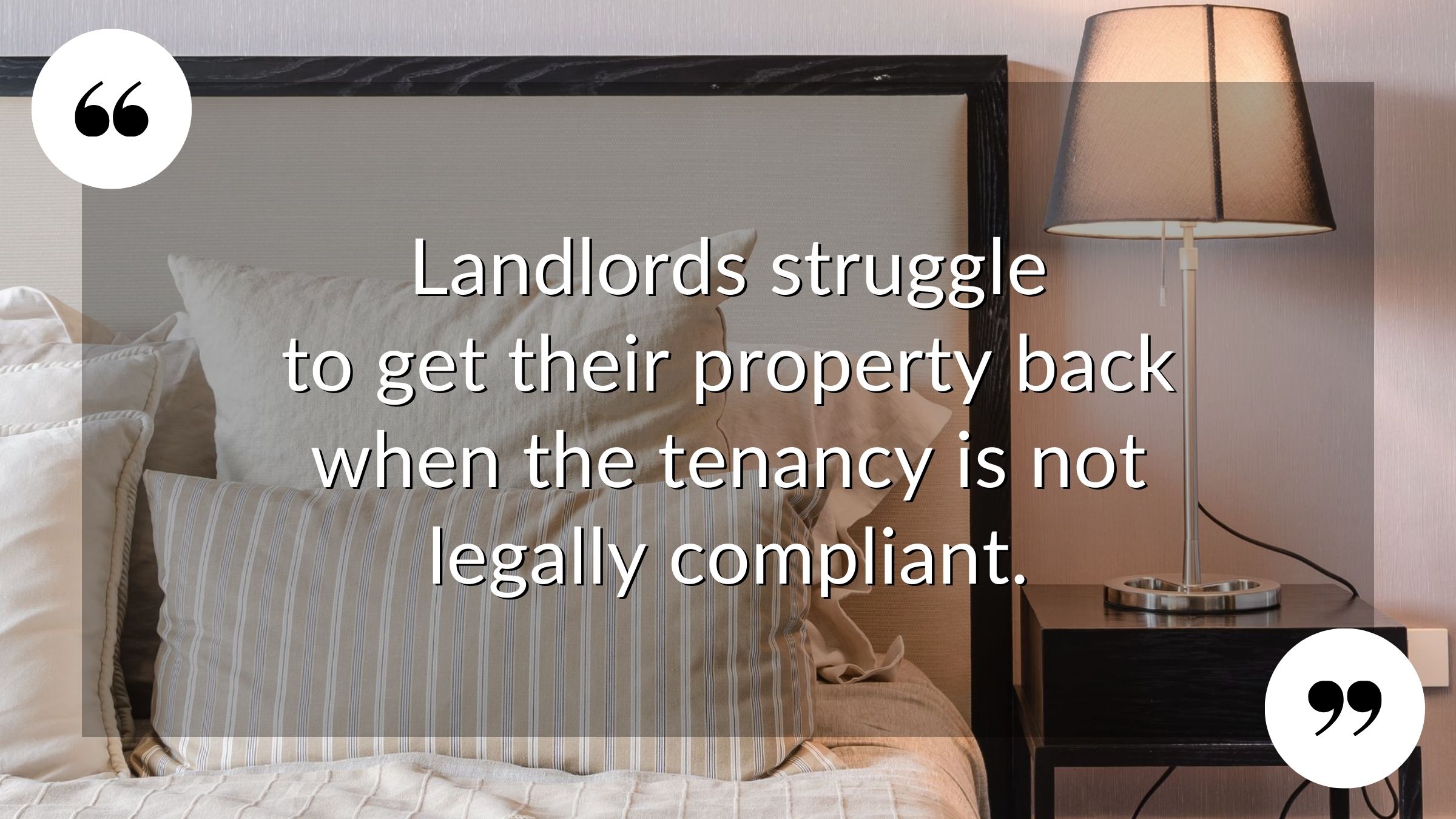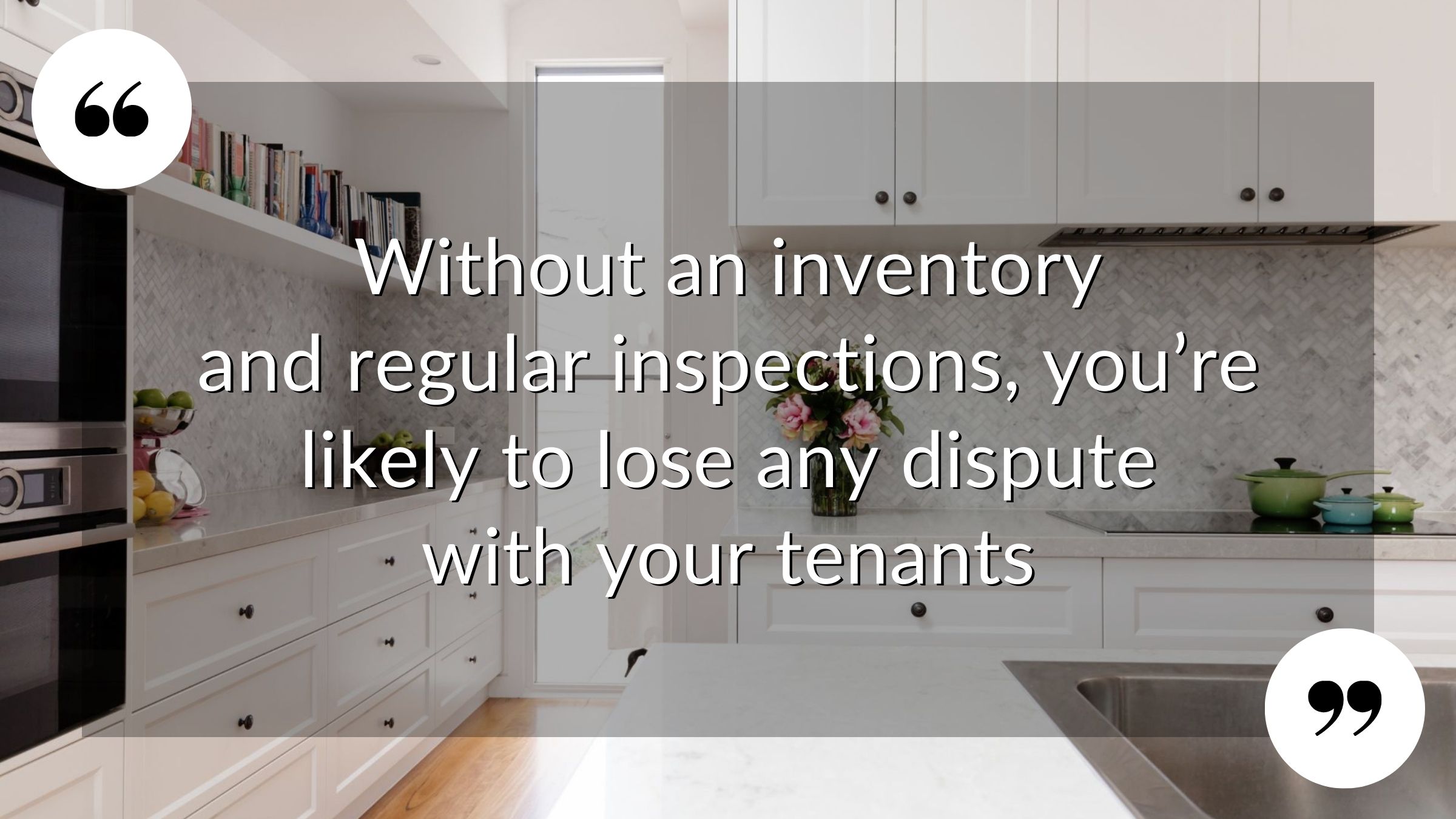Hardly any landlords we meet are fully legally compliant when we first speak to them, but it’s never on purpose. In fact, most of them genuinely believe they’ve got everything handled.
Unfortunately, this often means that problems are already brewing by the time they contact us, and some of the biggest areas where landlords come unstuck include:
- Leaving themselves open to fines.
- Renewing tenancies at a rent that’s too low.
- Being unable to get their tenants out.
- Losing disputes over damages.
- Accidentally breaking the law.
Given the regular changes in legislation, it’s no wonder that so many landlords get caught out. But it doesn’t have to be that way, and a good managing agent can really save you a whole heap of hassle.
With that in mind, let’s look at the potential traps you might not be aware of and how we stop you from falling in.

ARE YOU IN LINE FOR A FINE?
Lots of legislation is now tied to financial penalties, including compensation for tenants and fines that local authorities are allowed to keep and encouraged to enforce.
Among the numerous things to be aware of are:
- Registering a security deposit late carries a penalty of up to three months’ rent payable to the tenants, while safety certificate breaches can attract £30,000 fines from the local authority.
- Additional penalties include compensation entirely at a judge’s discretion for a home that fails fit-for-habitation standards, even when the landlord isn’t aware of any problems.
- An explosion of no-win, no-fee legal companies has sprung up, enticing tenants into legal action with the promise of compensation for no financial risk.
With such a minefield of possible pitfalls, we regularly review our procedures to have watertight paperwork that protects our landlords from costly legal action, fines and compensation claims.

CAN YOU GET YOUR PROPERTY BACK?
Given the shortage of available rental homes, tenants will understandably do anything to avoid having to leave if they are given notice.
We meet plenty of landlords who come up against tiny loopholes that stop them from taking possession, and some recent examples include:
- Failing to supply tenants with their tenancy agreement or the government’s How To Rent Guide.
- Not checking smoke alarms and carbon monoxide detectors on the day the tenancy starts (even if you checked them the day before).
- Either not providing copies of safety certificates to tenants, or not being able to prove that the tenants received them (a reply by email is ideal, or a signature on a copy of the certificate).
- Not protecting the security deposit with a government-approved body like the Tenancy Deposit Scheme.
- Not having a copy of the tenancy agreement due to the previous letting agent being bought out and the new agent destroying the file after the seven-year legal threshold for keeping it expired.
Given how long possession proceedings take, we ensure accurate paperwork to be able to serve notice smoothly. And, if it ever does come to legal action, to ensure the case won’t be lost on a technicality.

ARE YOU CHOOSING PAIN OVER PROFIT?
Rent increases can be a tricky subject, and many landlords freeze theirs for years when they have good tenants, even when rents are rocketing and despite facing higher taxes and mortgage costs.
Having long-term tenants you trust is the holy grail of being a landlord, but it’s just as essential to have a viable business, and we wouldn’t be doing our job if we didn’t speak up about that.
So here are some things to consider when you’re questioning whether or not to review the rent.
- If freezing the rent puts you into financial difficulty, any pleasure in being a landlord will disappear and be replaced by anxiety and distress.
- If that forces you to sell up, the property will either be removed from the rental market entirely or come back with a new landlord at the full market rent, and you’ll have a Capital Gains Tax bill.
- Tenants are more aware than anyone of the shortage of homes and rents being higher than ever: nobody wants their rent to go up, but annual reviews are generally accepted and expected.
If it comes to it, finding new high-quality tenants isn’t hard right now. However, our experience is that a carefully managed rent review can retain responsible tenants and reward diligent landlords.

WILL YOU LOSE A DEPOSIT DISPUTE?
Far too many landlords leave the door wide open for costly repairs and disputes that could have been avoided, and these are some of the most common pitfalls.
- Cheap off-the-shelf tenancy agreements often fall short of setting out every eventuality around a tenant’s responsibilities, creating grey areas that usually give tenants the benefit of the doubt.
- The wording around the security deposit needs to clearly state the types of costs it can be used to repay. Otherwise, you could find yourself with a bill you’re not covered for.
- Without a detailed inventory at the start of the tenancy with photographic or video evidence signed by the tenants, it’s very unlikely a court will find in your favour.
All of this is why we prepare comprehensive tenancy agreements with detailed inventories, then educate tenants on what to look out for, and carry out regular inspections on every property we manage.

ARE YOU ACCIDENTALLY BREAKING THE LAW?
Staying on top of lettings legislation is time-consuming and confusing, and you could suddenly find yourself outside the law if you don’t spot an update on the Government or local authority websites.
A few examples of misunderstandings among landlords include:
- The requirements for safety certificate renewals are different not just for gas and electricity, but also depending on whether you own rental homes in England, Scotland or Wales.
- Tenants can be afraid to report problems for fear of being given notice, but you can’t use ignorance as a defence if your property ends up failing fit-for-human-habitation rules.
- The rules for HMOs change between different local authorities, from streets where they’re banned altogether to the size of property requiring a license.
- In England and Wales, Right to Rent checks are mandatory for non-UK citizens, and you need to see visas or residence permits for every tenant over 18, then re-check before the expiry dates to confirm continued permission to stay and whether any children have since turned 18.
It’s all too easy to forget that documentation from a few years ago might be running out, so we have robust systems and reminders in place to ensure our landlords stay on the right side of the law.
Is your rental property set up correctly?
It’s far better to be safe than sorry, so if you own a rental property in the Wilton & Salisbury area, get in touch for a no-strings check to see if everything is in order, or what needs to be done.
Call us on 01722 580059 or email us at info@piccoloproperty.co.uk for a chat with one of our team.






Share this with
Email
Facebook
Messenger
Twitter
Pinterest
LinkedIn
Copy this link